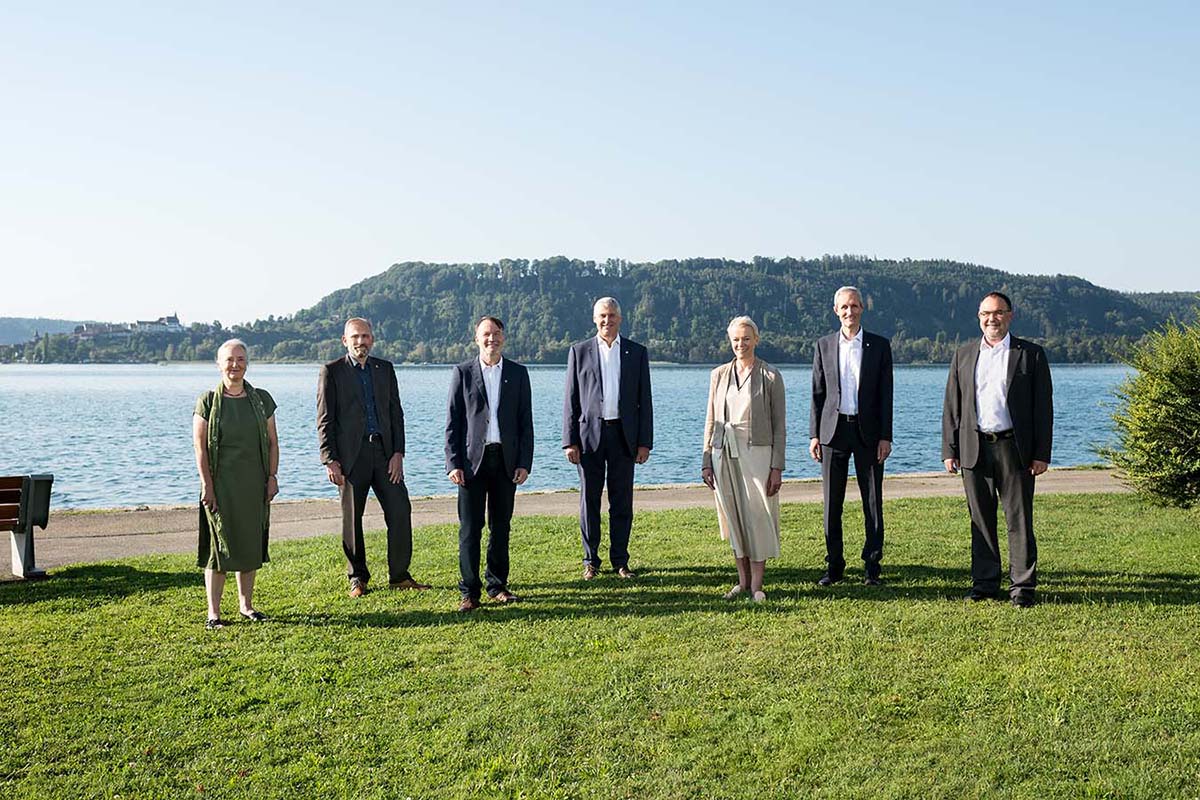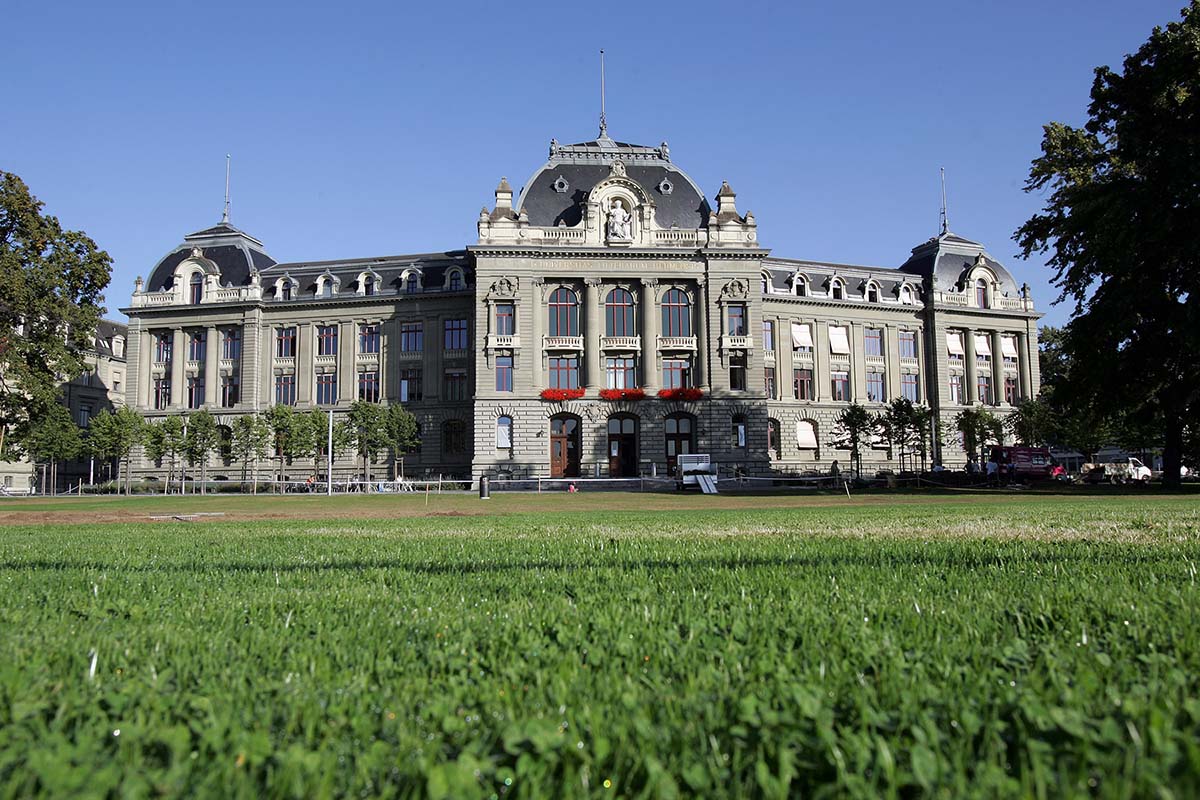Annual Report 2022: Knowledge creates future
2022 was marked by historic upheaval for Europe as a whole. In its new Annual Report, the University of Bern shows its contributions to solving problem areas which could well be exacerbated by global conflict situations and pandemics in the coming years.
“What was once considered unimaginable has become a shocking reality,” says Rector Christian Leumann of Russia’s attack on Ukraine in the new Annual Report. For the first time since the Balkan conflict, a European country found itself at war. As a result, a large number of academics fleeing the country also ended up at the University of Bern. The Compass UniBE project initiated by the University is also intended to eliminate obstacles for refugee students. In the future, this will give participants the opportunity to prepare in depth for admission to a course of study at the University of Bern. “2022 clearly showed that the University of Bern is closing an important gap in enabling access to higher education for student refugees with the Compass UniBE project,” says Silvia Schroer, Vice-Rector for Quality.
Knowledge for society
In the past year, the University was able to successfully conclude three interfaculty research cooperations, co-found a new master’s degree program in precision engineering, and contribute to better primary care medicine with the first students completing their master’s degree program in pharmacy. “At the University of Bern, knowledge is generated, passed on and harnessed for the benefit of people in concrete projects,” says Rector Christian Leumann. To provide society with knowledge, the University undertook further efforts alongside the staging of established events such as the successful Night of Research: “In addition to setting up the Innovation Office, we also launched the UniBE Venture Fellowships, organized the first founder forum, and focused on entrepreneurial researchers for the first time at the Swiss Startup Days,” stresses Vice-Rector for Research, Hugues Abriel. For him it is obvious that the University of Bern can only fulfill this task if it addresses the innovative spirit and entrepreneurship of its members.
International collaboration is pivotal
While the war in Ukraine posed some new challenges for the University, 2022 also became known as the year after the coronavirus and opened the door to new opportunities. New channels were launched and existing formats expanded in the field of academic talent and career development. “With the new UniBE Short Travel Grants for supporting research trips, early career researchers have once again been given the opportunity to carry out projects abroad and to expand their international networks,” explains Virginia Richter, Vice-Rector for Development.
Combining in-person teaching with digital experience
2022 saw teaching return permanently to the lecture halls, and with it the 19,297 students registered for the fall semester. However, the experience gained from remote teaching was not forgotten. “The University of Bern used this opportunity and made some huge steps forward in the promotion of good teaching in 2022,” says Vice-Rector for Teaching, Fritz Sager. This was kicked off by the tenth annual Day of Teaching in February. With more than 260 participants from across all German-speaking countries, this fully booked event took place exclusively online and was a major success.
Competitiveness still jeopardized
In 2022, the University of Bern’s total revenue amounted to CHF 947.5 million. The result attributable to basic funding was a loss of CHF 19.4 million because the University used its own resources to realize strategic initiatives, for example in the area of digital transformation. In spite of stable basic funding by the Canton of Bern and the federal government, the development of basic funding has seen little growth meaning that a structural deficit can be expected due to underfunding in this area in as early as the medium term with a corresponding threat to the competitive position of the University as a whole. “We can only continue to attract the best researchers and their projects to Bern if we are able to also offer specialist infrastructure on time and according to demand,” says Administrative Director Markus Brönnimann.
2023/05/02



